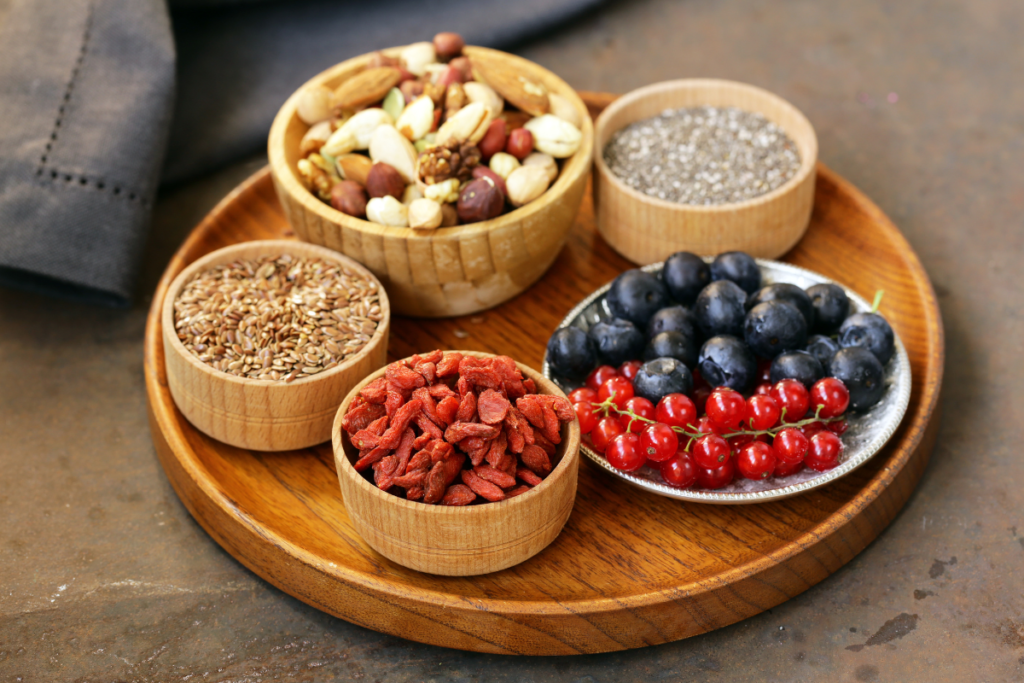Superfoods are praised for their health advantages, including quinoa, chia seeds, and kale. However, are they actually better than other foods high in nutrients, or is it just the term discovered to sell the products? The science underlying superfoods, common misconceptions, and reasonably priced Indian substitutes will all be covered in this article.
What Are Superfoods?
Superfoods are nutrient-rich foods believed to have exceptional health benefits. Common examples include:
● Blueberries are packed with antioxidants.
● Quinoa is a complete protein.
● Turmeric is known for its anti-inflammatory properties.
The Science of Superfoods:
1. Blueberries:
● rich in oxidative stress-fighting anthocyanins.
2. Turmeric:
● It contains curcumin, a potent anti inflammatory compound.
3. Quinoa:
● A rare plant-based complete protein containing all essential amino acids.
Myths About Superfoods
Myth 1: “Superfoods are necessary for health.”
● Fact: A balanced diet with diverse foods provides all essential nutrients.
Myth 2: “Expensive superfoods are better.”
● Fact: Low-cost alternatives with similar health advantages include flaxseeds, spinach, and amla.
Myth 3: “Superfoods cure diseases.”
● Fact: No single food can cure illnesses. A holistic diet and lifestyle are essential.
Affordable Indian Alternatives
1. Quinoa vs. Millets
● Millets are fibre-rich and sustainable, making them a better choice for Indian diets.
2. Acai Berries vs. Amla
● Amla offers more vitamin C than acai berries and is far more affordable.
3. Kale vs. Spinach
● Spinach is nutrient-dense, widely available, and more accessible to incorporate into Indian dishes.
4. Chia Seeds vs. Flaxseeds
● Flaxseeds are rich in omega-3s and more cost-effective than chia seeds.
FAQs About Superfoods
Are superfoods safe for everyone?
Do superfoods replace a balanced diet?
Are supplements better than natural superfoods?
How HealthPil Can Help:
We at HealthPil help you find cost-effective, nutrient-dense options that are designed to meet your needs. Our nutrition specialists offer scientifically supported suggestions to improve your diet in a sustainable way.
Disclaimer:
This article is for informational purposes only and does not replace medical advice. For specific dietary concerns, consult a healthcare provider.
Conclusion:
No doubt, superfoods are high in nutrients, but their benefits are often overrated. Foods that are locally grown and cheaply priced can offer similar advantages without breaking the wallet. For personalised nutritional guidance on your journey to better health, you can trust HealthPil.

